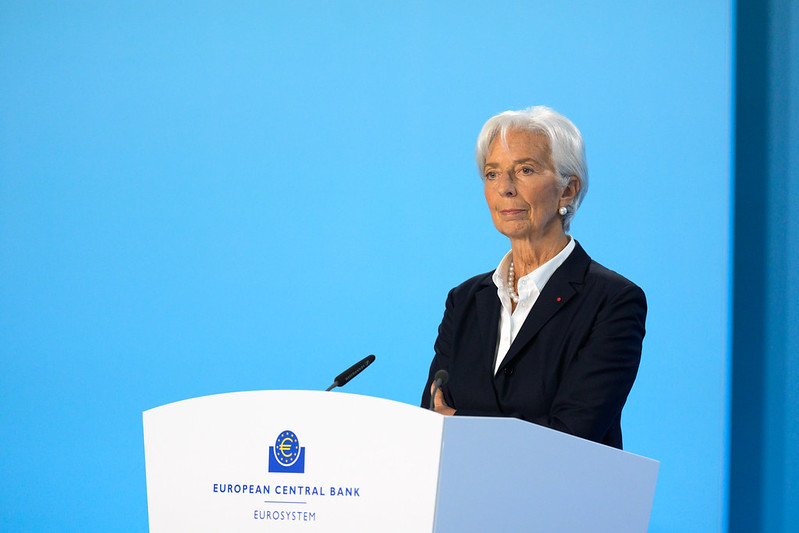Interview with Danièle Nouy, Chair of the Supervisory Board of the European Central Bank (ECB)

Interview with Danièle Nouy, Chair of the Supervisory Board of the European Central Bank (ECB), conducted by Omiros Emmanouilidis and published on 13 February 2016
1. Has ECB Banking Supervision succeeded in supervising the euro area banking sector?
Not only did we manage to launch European banking supervision and conduct a comprehensive assessment of the institutions that we would supervise within a very limited time frame, but since assuming supervision in November 2014, we have dealt with some considerable challenges on the road towards establishing a level playing field across the euro area banking sector. We have applied a common Supervisory Review and Evaluation Process, the SREP, which has resulted in additional capital requirements under the common methodology, thus improving bank capitalisation. And we have also largely addressed the issue of options and national discretions (ONDs) that are an impediment to consistent supervision: of the 167 such ONDs, we have managed to fix 122. The others are in the hands of legislators, not us. As supervisors we are pushing legislators to make sure that the number of ONDs is reduced even further.
2. What must be done to enhance further the role and effectiveness of ECB Banking Supervision?
Our goal is to continue improving the very good cooperation that we have between ECB Banking Supervision staff and the staff of the national supervisory authorities who work together in the Joint Supervisory Teams (JSTs). The JSTs are the cornerstone of our banking supervision. We have around 1,000 people working in Frankfurt am Main and around 2,000 others in the national authorities, such as the Bank of Greece. And let me say that I am very proud of the excellent cooperation we have had with our Greek colleagues. They have indeed performed a colossal task over the last two years. Apart from that, the key to the future effectiveness of ECB Banking Supervision will be the harmonisation of the supervisory framework and regulation.
3. What are your priorities now?
There are two difficulties facing banks: non-performing exposures (NPEs), which are quite high in a number of European countries, and the risk to profitability because of the low interest rates. Our top supervisory priority for 2016 is therefore to make sure that banks review their business models to ensure that they are fully sustainable.
4. How can a well supervised banking system contribute to growth? Aren’t the high capital requirements impeding growth?
High capital requirements do not impede growth. Only well capitalised banks are able to finance the economy throughout the business cycle. Poorly capitalised banks are exuberant during bubbles, during happy times, but refrain from lending to the economy when there is a crisis, so they aggravate the situation.
5. In 2015 the Greek banks were recapitalised in line with the findings of the comprehensive assessment conducted by the ECB. Will they be excluded from this year’s stress test exercise?
Yes, they will be excluded this time around because they already went through a stress test in 2015. And that test was in fact a comprehensive assessment that also comprised an asset quality review. So it was actually even more rigorous than a pure stress test.
6. But would you say that banks need to undergo another comprehensive assessment because of the current situation?
No, I wouldn’t say that. The comprehensive assessment we conducted in 2015 was rigorous and the assumptions of the adverse scenario were appropriately conservative and adequate for the current situation.
7. Will more funds be required for the implementation of the banks’ restructuring plans? Is a bail-in off the table for good?
The capital plans have been fulfilled so there is no need for additional capital requirements. We are in good shape in that respect and, thus, there is no reason to believe there is a need for a bail-in, as there is no need for a recapitalisation. However, the best guarantee against another recapitalisation is for growth to recover based on the implementation of the programme and for banks to tackle the NPE issue decisively.
8. What must be done to repair the loan portfolios of the Greek banks?Should the NPEs be dealt with on the banks’ balance sheets or be sold to funds?
Given the magnitude of the problem, all available tools should be considered. Part of NPEs can be expected to be dealt with on banks’ balance sheets. Others might be addressed by selling them. All possibilities should be examined as we have a wide variety of situations, such as loans to small and large companies, or loans to individuals. Different cases may require different approaches and this situation will take time to correct. So, as with every long journey, it is better to get started early!
9. Will ECB Banking Supervision play a role in the legal and regulatory framework regarding the management of loans?
The legal and judicial framework must indeed be adapted so that banks can do their job, which is to fund the economy, and help growth to resume. But we are not the legislators and there are aspects of the NPEs that go beyond banking supervision.
10. The evaluation of the boards of directors of the Greek banks is pending. What criteria will apply?
The assessment of the adequacy of board members and of the balance of board composition is carried out by supervisors through CRD IV and fit and proper rules, which are transposed into Greek legislation. Part of the Greek national legislation is the new Hellenic Financial Stability Fund law, which provides criteria for the assessment of board members.
11. How will the banks be able to get access to more liquidity in order to reduce their dependence on ELA? When will the waiver be reinstated?
I am not able to comment on the waiver as this is not in the remit of banking supervision. Regarding ELA, banks have already managed to slightly reduce their reliance on it. Nevertheless, it is still a large and costly source of funding for them, which can be reduced by attracting deposits and increasing banks’ access to market funding. In this regard, confidence must be restored. Implementation of the agreed reforms is therefore essential. For our part, we are committed to ensuring good supervision of the Greek banks in order to help rebuild confidence in them. This is what I can promise.
Source: Bankingsupervision.europ.eu
Comentarii
Nu există comentarii pentru această știre.
Adauga un comentariu
Alte stiri din categoria: Noutati BCE
Dobanda la euro scade la 2,25%
Banca Centrala Europeana (BCE) a scazut dobanda de referita (deposit rate - facilitatea de depozit) cu un sfert de punct, la 2,25%, ca efect al razboiului comercial declansat de presedintele... detalii
Acord intre BCE si BNR pentru supravegherea bancilor
• BCE semnează Memorandumul de înțelegere cu autoritățile naționale competente din șase state membre ale UE care nu participă la supravegherea bancară europeană. • Țările care fac obiectul Memorandumului sunt Cehia, Danemarca, Polonia, România, Suedia și Ungaria.• Memorandumul consolidează cooperarea în materie de supraveghere prin partajarea de informații și promovează o cultură comună în domeniul supravegherii.Banca Centrală Europeană (BCE) a încheiat un Memorandum de înțelegere multilateral cu autoritățile naționale competente (ANC) ale celor șase state membre ale UE care nu participă la supravegherea bancară europeană, conform unui comunicat de presa, in care se adauga:Memorandumul va asigura un cadru prin intermediul căruia Cehia, Danemarca, Polonia, România, Suedia și Ungaria vor face schimb de informații și își vor coordona activitățile de supraveghere.Acordul urmărește să intensifice în continuare cooperarea în materie de supraveghere la nivel european, pe fundamentul... detalii
Banca Centrala Europeana (BCE) explica de ce a majorat dobanda la 2%
Banca Centrala Europeana (BCE) explica de ce a majorat dobanda la 2%, in cadrul unei conferinte de presa sustinute de Christine Lagarde, președinta BCE, si Luis de Guindos, vicepreședintele BCE.Iata... detalii
BCE creste dobanda la 2%, dupa ce inflatia a ajuns la 10%
Banca Centrala Europeana (BCE) a majorat dobanda de referinta pentru tarile din zona euro cu 0,75 puncte, la 2% pe an, din cauza cresterii substantiale a inflatiei, ajunsa la aproape 10% in septembrie, cu mult peste tinta BCE, de doar 2%.In aceste conditii, BCE a anuntat ca va continua sa majoreze dobanda de politica monetara.De asemenea, BCE a luat masuri pentru a reduce nivelul imprumuturilor acordate bancilor in perioada pandemiei coronavirusului, prin majorarea dobanzii aferente acestor facilitati, denumite operațiuni țintite de refinanțare pe termen mai lung (OTRTL).Comunicatul BCEConsiliul guvernatorilor a decis astăzi să majoreze cu 75 puncte de bază cele trei rate ale dobânzilor reprezentative ale BCE. Prin această majorare substanțială a ratelor dobânzilor pentru a treia oară consecutiv, Consiliul guvernatorilor a înregistrat progrese considerabile în procesul de retragere a măsurilor acomodative de politică monetară. Consiliul... detalii
 Dobânda pe termen lung a continuat să scadă in septembrie 2022. Ecartul față de Polonia și Cehia, redus semnificativ
Dobânda pe termen lung a continuat să scadă in septembrie 2022. Ecartul față de Polonia și Cehia, redus semnificativ
 Rata dobanzii pe termen lung pentru Romania, in crestere la 2,96%
Rata dobanzii pe termen lung pentru Romania, in crestere la 2,96%
 BCE recomanda bancilor sa nu plateasca dividende
BCE recomanda bancilor sa nu plateasca dividende
 Modul de functionare a relaxarii cantitative (quantitative easing – QE)
Modul de functionare a relaxarii cantitative (quantitative easing – QE)
 Dobanda la euro nu va creste pana in iunie 2020
Dobanda la euro nu va creste pana in iunie 2020
 BCE trebuie sa fie consultata inainte de adoptarea de legi care afecteaza bancile nationale
BCE trebuie sa fie consultata inainte de adoptarea de legi care afecteaza bancile nationale
 BCE a publicat avizul privind taxa bancara
BCE a publicat avizul privind taxa bancara
 BCE va mentine la 0% dobanda de referinta pentru euro cel putin pana la finalul lui 2019
BCE va mentine la 0% dobanda de referinta pentru euro cel putin pana la finalul lui 2019
 ECB: Insights into the digital transformation of the retail payments ecosystem
ECB: Insights into the digital transformation of the retail payments ecosystem
 ECB introductory statement on Governing Council decisions
Vezi toate stirile
ECB introductory statement on Governing Council decisions
Vezi toate stirile
Criza COVID-19
- In majoritatea unitatilor BRD se poate intra fara certificat verde
- La BCR se poate intra fara certificat verde
- Firmele, obligate sa dea zile libere parintilor care stau cu copiii in timpul pandemiei de coronavirus
- CEC Bank: accesul in banca se face fara certificat verde
- Cum se amana ratele la creditele Garanti BBVA
Topuri Banci
- Topul bancilor dupa active si cota de piata in perioada 2022-2015
- Topul bancilor cu cele mai mici dobanzi la creditele de nevoi personale
- Topul bancilor la active in 2019
- Topul celor mai mari banci din Romania dupa valoarea activelor in 2018
- Topul bancilor dupa active in 2017
Asociatia Romana a Bancilor (ARB)
- Băncile din România nu au majorat comisioanele aferente operațiunilor în numerar
- Concurs de educatie financiara pentru elevi, cu premii in bani
- Creditele acordate de banci au crescut cu 14% in 2022
- Romanii stiu educatie financiara de nota 7
- Gradul de incluziune financiara in Romania a ajuns la aproape 70%
ROBOR
- ROBOR: ce este, cum se calculeaza, ce il influenteaza, explicat de Asociatia Pietelor Financiare
- ROBOR a scazut la 1,59%, dupa ce BNR a redus dobanda la 1,25%
- Dobanzile variabile la creditele noi in lei nu scad, pentru ca IRCC ramane aproape neschimbat, la 2,4%, desi ROBOR s-a micsorat cu un punct, la 2,2%
- IRCC, indicele de dobanda pentru creditele in lei ale persoanelor fizice, a scazut la 1,75%, dar nu va avea efecte imediate pe piata creditarii
- Istoricul ROBOR la 3 luni, in perioada 01.08.1995 - 31.12.2019
Taxa bancara
- Normele metodologice pentru aplicarea taxei bancare, publicate de Ministerul Finantelor
- Noul ROBOR se va aplica automat la creditele noi si prin refinantare la cele in derulare
- Taxa bancara ar putea fi redusa de la 1,2% la 0,4% la bancile mari si 0,2% la cele mici, insa bancherii avertizeaza ca indiferent de nivelul acesteia, intermedierea financiara va scadea iar dobanzile vor creste
- Raiffeisen anunta ca activitatea bancii a incetinit substantial din cauza taxei bancare; strategia va fi reevaluata, nu vor mai fi acordate credite cu dobanzi mici
- Tariceanu anunta un acord de principiu privind taxa bancara: ROBOR-ul ar putea fi inlocuit cu marja de dobanda a bancilor
Statistici BNR
- Deficitul contului curent, creștere cu 16% în ianuarie 2025
- Deficitul contului curent, aproape 30 miliarde euro în 2024
- Deficitul contului curent, aproape 20 miliarde euro după primele nouă luni
- Deficitul contului curent, aproape 18 miliarde euro după primele opt luni
- Deficitul contului curent, peste 9 miliarde euro pe primele cinci luni
Legislatie
- Decizia nr.105/2007 privind raportarea la Biroul de Credit
- Legea nr. 311/2015 privind schemele de garantare a depozitelor şi Fondul de garantare a depozitelor bancare
- Rambursarea anticipata a unui credit, conform OUG 50/2010
- OUG nr.21 din 1992 privind protectia consumatorului, actualizata
- Legea nr. 190 din 1999 privind creditul ipotecar pentru investiții imobiliare
Lege plafonare dobanzi credite
- Care este dobanda maxima la un credit IFN?
- BNR propune Parlamentului plafonarea dobanzilor la creditele bancilor intre 1,5 si 4 ori peste DAE medie, in functie de tipul creditului; in cazul IFN-urilor, plafonarea dobanzilor nu se justifica
- Legile privind plafonarea dobanzilor la credite si a datoriilor preluate de firmele de recuperare se discuta in Parlament (actualizat)
- Legea privind plafonarea dobanzilor la credite nu a fost inclusa pe ordinea de zi a comisiilor din Camera Deputatilor
- Senatorul Zamfir, despre plafonarea dobanzilor la credite: numai bou-i consecvent!
Anunturi banci
- BCR este inchisa vineri, 18 aprilie, si luni, 21 aprilie
- Cererile de transfer de bani prin Whatsapp, Telegram, Messenger sunt fraude
- Un telefon sau mesaj care pare de la banca poate fi frauda
- Cererea unui ajutor in bani poate fi o inselaciune
- Cate reclamatii primeste Intesa Sanpaolo Bank si cum le gestioneaza
Analize economice
- Inflația anuală, redusă la 4,86%
- Comerțul, a cincea lună consecutivă de ajustare a creșterii
- Pensia reală a crescut cu peste 15% anul trecut
- Deficitul bugetar, rezultat slab după primele două luni
- Deficit comercial în creștere cu 38,5% pe ianuarie 2025
Ministerul Finantelor
- Deficitul bugetar, din ce în ce mai mare la început de an
- -8,65% din PIB, deficit bugetar pe anul 2024
- Datoria publică, 51,4% din PIB la mijlocul anului
- Deficit bugetar de 3,6% din PIB după prima jumătate a anului
- Deficit bugetar de 3,4% din PIB după primele cinci luni ale anului
Biroul de Credit
- FUNDAMENTAREA LEGALITATII PRELUCRARII DATELOR PERSONALE IN SISTEMUL BIROULUI DE CREDIT
- BCR: prelucrarea datelor personale la Biroul de Credit
- Care banci si IFN-uri raporteaza clientii la Biroul de Credit
- Ce trebuie sa stim despre Biroul de Credit
- Care este procedura BCR de raportare a clientilor la Biroul de Credit
Procese
- ANPC pierde un proces cu Intesa si ARB privind modul de calcul al ratelor la credite
- Un client Credius obtine in justitie anularea creditului, din cauza dobanzii prea mari
- Hotararea judecatoriei prin care Aedificium, fosta Raiffeisen Banca pentru Locuinte, si statul sunt obligati sa achite unui client prima de stat
- Decizia Curtii de Apel Bucuresti in procesul dintre Raiffeisen Banca pentru Locuinte si Curtea de Conturi
- Vodafone, obligata de judecatori sa despagubeasca un abonat caruia a refuzat sa-i repare un telefon stricat sau sa-i dea banii inapoi (decizia instantei)
Stiri economice
- Deficitul comercial pe primele două luni ale anului, majorat cu 35%
- România, campioana europeană la șomajul tinerilor
- România, pe locul trei în UE la creșterea costului salarial în T4 2024
- Producția industrială, scădere conjuncturală în ianuarie 2025
- Datoria publică, 54,6% din PIB la finele lui 2024
Statistici
- România, marginal peste Estonia la inflația anuală
- România, a doua țară din UE ca pondere a salariaților cu venituri mici
- România, pe locul trei în UE la creșterea costului muncii în T2 2024
- Cheltuielile cu pensiile - România, pe locul 19 în UE ca pondere în PIB
- Dobanda din Cehia a crescut cu 7 puncte intr-un singur an
FNGCIMM
- Programul IMM Invest continua si in 2021
- Garantiile de stat pentru credite acordate de FNGCIMM au crescut cu 185% in 2020
- Programul IMM invest se prelungeste pana in 30 iunie 2021
- Firmele pot obtine credite bancare garantate si subventionate de stat, pe baza facturilor (factoring), prin programul IMM Factor
- Programul IMM Leasing va fi operational in perioada urmatoare, anunta FNGCIMM
Calculator de credite
- ROBOR la 3 luni a scazut cu aproape un punct, dupa masurile luate de BNR; cu cat se reduce rata la credite?
- In ce mall din sectorul 4 pot face o simulare pentru o refinantare?
Noutati BCE
- Dobanda la euro scade la 2,25%
- Acord intre BCE si BNR pentru supravegherea bancilor
- Banca Centrala Europeana (BCE) explica de ce a majorat dobanda la 2%
- BCE creste dobanda la 2%, dupa ce inflatia a ajuns la 10%
- Dobânda pe termen lung a continuat să scadă in septembrie 2022. Ecartul față de Polonia și Cehia, redus semnificativ
Noutati EBA
- Bancile romanesti detin cele mai multe titluri de stat din Europa
- Guidelines on legislative and non-legislative moratoria on loan repayments applied in the light of the COVID-19 crisis
- The EBA reactivates its Guidelines on legislative and non-legislative moratoria
- EBA publishes 2018 EU-wide stress test results
- EBA launches 2018 EU-wide transparency exercise
Noutati FGDB
- Banii din banci sunt garantati, anunta FGDB
- Depozitele bancare garantate de FGDB au crescut cu 13 miliarde lei
- Depozitele bancare garantate de FGDB reprezinta doua treimi din totalul depozitelor din bancile romanesti
- Peste 80% din depozitele bancare sunt garantate
- Depozitele bancare nu intra in campania electorala
CSALB
- Sistemul bancar romanesc este deosebit de bine pregatit pentru orice fel de socuri
- La CSALB poti castiga un litigiu cu banca pe care l-ai pierde in instanta
- Negocierile dintre banci si clienti la CSALB, in crestere cu 30%
- Sondaj: dobanda fixa la credite, considerata mai buna decat cea variabila, desi este mai mare
- CSALB: Romanii cu credite caută soluții pentru reducerea ratelor. Cum raspund bancile
First Bank
- Ce trebuie sa faca cei care au asigurare la credit emisa de Euroins
- First Bank este reprezentanta Eurobank in Romania: ce se intampla cu creditele Bancpost?
- Clientii First Bank pot face plati prin Google Pay
- First Bank anunta rezultatele financiare din prima jumatate a anului 2021
- First Bank are o noua aplicatie de mobile banking
Noutati FMI
- FMI: criza COVID-19 se transforma in criza economica si financiara in 2020, suntem pregatiti cu 1 trilion (o mie de miliarde) de dolari, pentru a ajuta tarile in dificultate; prioritatea sunt ajutoarele financiare pentru familiile si firmele vulnerabile
- FMI cere BNR sa intareasca politica monetara iar Guvernului sa modifice legea pensiilor
- FMI: majorarea salariilor din sectorul public si legea pensiilor ar trebui reevaluate
- IMF statement of the 2018 Article IV Mission to Romania
- Jaewoo Lee, new IMF mission chief for Romania and Bulgaria
Noutati BERD
- Creditele neperformante (npl) - statistici BERD
- BERD este ingrijorata de investigatia autoritatilor din Republica Moldova la Victoria Bank, subsidiara Bancii Transilvania
- BERD dezvaluie cat a platit pe actiunile Piraeus Bank
- ING Bank si BERD finanteaza parcul logistic CTPark Bucharest
- EBRD hails Moldova banking breakthrough
Noutati Federal Reserve
- Federal Reserve anunta noi masuri extinse pentru combaterea crizei COVID-19, care produce pagube "imense" in Statele Unite si in lume
- Federal Reserve urca dobanda la 2,25%
- Federal Reserve decided to maintain the target range for the federal funds rate at 1-1/2 to 1-3/4 percent
- Federal Reserve majoreaza dobanda de referinta pentru dolar la 1,5% - 1,75%
- Federal Reserve issues FOMC statement
Noutati BEI
- BEI a redus cu 31% sprijinul acordat Romaniei in 2018
- Romania implements SME Initiative: EUR 580 m for Romanian businesses
- European Investment Bank (EIB) is lending EUR 20 million to Agricover Credit IFN
Mobile banking
- Comisioanele BRD pentru MyBRD Mobile, MyBRD Net, My BRD SMS
- Termeni si conditii contractuale ale serviciului You BRD
- Recomandari de securitate ale BRD pentru utilizatorii de internet/mobile banking
- CEC Bank - Ghid utilizare token sub forma de card bancar
- Cinci banci permit platile cu telefonul mobil prin Google Pay
Noutati Comisia Europeana
- Avertismentul Comitetului European pentru risc sistemic (CERS) privind vulnerabilitățile din sistemul financiar al Uniunii
- Cele mai mici preturi din Europa sunt in Romania
- State aid: Commission refers Romania to Court for failure to recover illegal aid worth up to €92 million
- Comisia Europeana publica raportul privind progresele inregistrate de Romania in cadrul mecanismului de cooperare si de verificare (MCV)
- Infringements: Commission refers Greece, Ireland and Romania to the Court of Justice for not implementing anti-money laundering rules
Noutati BVB
- BET AeRO, primul indice pentru piata AeRO, la BVB
- Laptaria cu Caimac s-a listat pe piata AeRO a BVB
- Banca Transilvania plateste un dividend brut pe actiune de 0,17 lei din profitul pe 2018
- Obligatiunile Bancii Transilvania se tranzactioneaza la Bursa de Valori Bucuresti
- Obligatiunile Good Pople SA (FRU21) au debutat pe piata AeRO
Institutul National de Statistica
- România, la 78% din PIB-ul mediu pe locuitor al UE
- Producția industrială, la cota -1,8% după 11 luni din 2024
- Deficitul contului curent, peste 26 miliarde euro în noiembrie 2024
- Comerțul cu amănuntul - în creștere cu 8% pe primele 10 luni
- Deficitul balanței comerciale la 9 luni, cu 15% mai mare față de aceeași perioadă a anului trecut
Informatii utile asigurari
- Data de la care FGA face plati pentru asigurarile RCA Euroins: 17 mai 2023
- Asigurarea împotriva dezastrelor, valabilă și in caz de faliment
- Asiguratii nu au nevoie de documente de confirmare a cutremurului
- Cum functioneaza o asigurare de viata Metropolitan pentru un credit la Banca Transilvania?
- Care sunt documente necesare pentru dosarul de dauna la Cardif?
ING Bank
- La ING se vor putea face plati instant din decembrie 2022
- Cum evitam tentativele de frauda online?
- Clientii ING Bank trebuie sa-si actualizeze aplicatia Home Bank pana in 20 martie
- Obligatiunile Rockcastle, cel mai mare proprietar de centre comerciale din Europa Centrala si de Est, intermediata de ING Bank
- ING Bank transforma departamentul de responsabilitate sociala intr-unul de sustenabilitate









